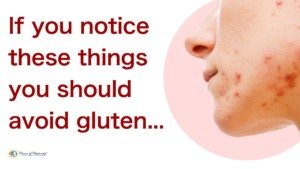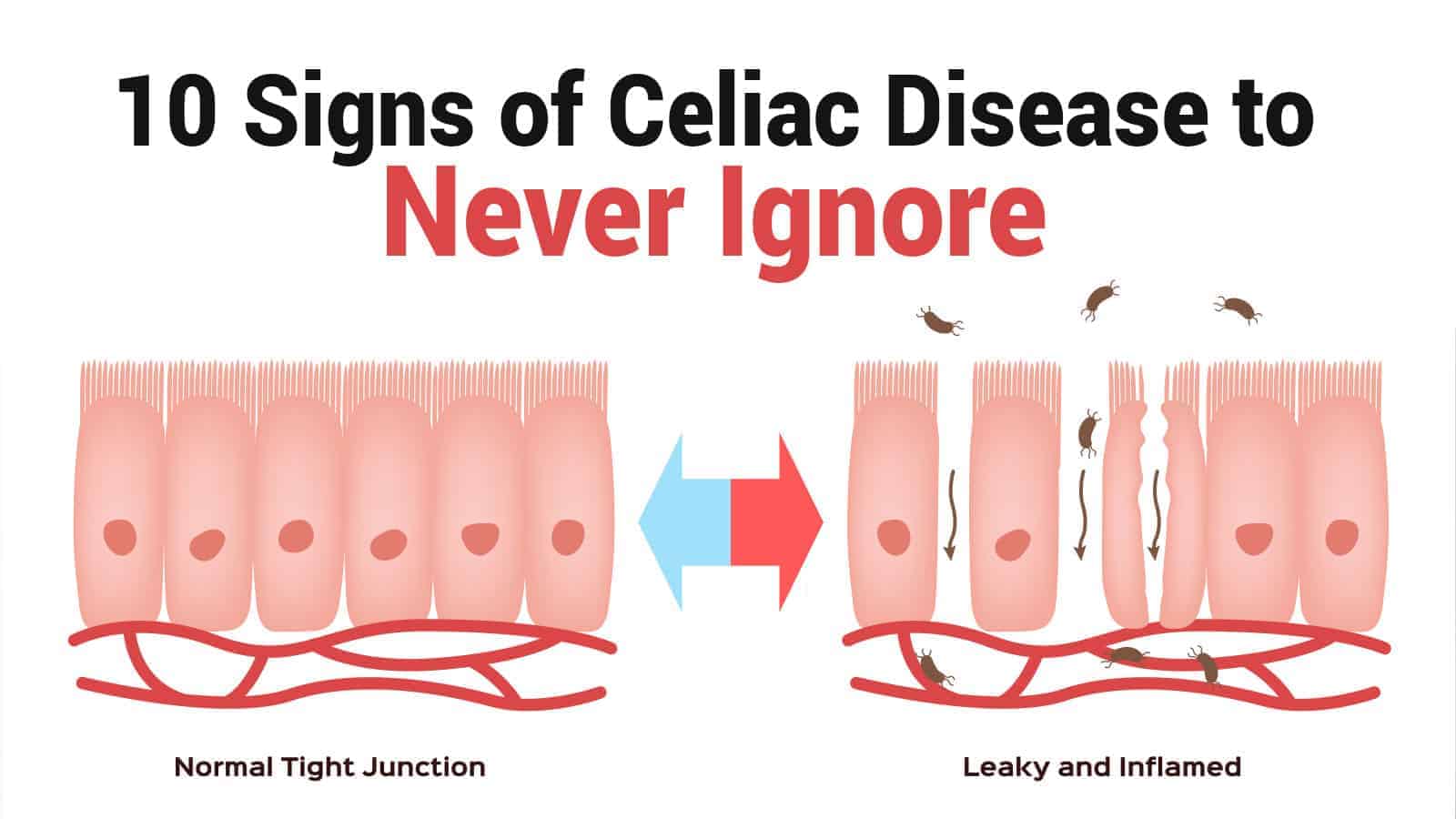If you’ve been in a grocery store across America, you will see that gluten-free items have a dedicated section on the shelves. They have become prime real estate for those doing the Keto diet and others who suffer from gluten sensitivity issues.
Many people will experiment with gluten-free products to lose weight or out of pure curiosity. However, some individuals cannot have this necessary additive that is put in most cereals, bread, and pasta, as it causes them to be ill. When you have celiac disease, gluten is the enemy, and it causes heinous gastric issues.
What Is Celiac Disease?
Celiac Disease is a widespread autoimmune condition that affects one out of every 100 people worldwide. In America, approximately 3 million people suffer from this painful condition. Gluten consumption damages the small intestines and causes long-term health problems.
One of the major problems of having this condition is that a person will have malabsorption of nutrients, and their body will suffer. Some of the signs of Celiac Disease are:
•Excessive Gas
•Diarrhea
•Vitamin Deficiency
•Neurological Problems
•Lactose Intolerance
•Infertility
•Osteoporosis
•Anemia
When a person that struggles with celiac disease eats anything with gluten in it, the villi that absorb the nutrients in the small intestine fall under attack. Eating traditional bread daily can leave a person with horrible stomach troubles, and it can end with severe conditions and neurological problems.
Many suffer in silence, thinking they have irritable bowel syndrome or some other hereditary gut issue. However, a simple test can usually determine whether Celiac is to blame.
 How is Celiac Disease Diagnosed?
How is Celiac Disease Diagnosed?
For some, Celiac is rather hard to diagnose. A doctor will first begin by gathering your family history. If other people in the immediate family suffer from this condition, then it’s suspect that your troubles could be similar.
If they believe Celiac could be the cause, then they will order a blood test. The physician is looking for specific antibodies that are related to this condition. However, if the test is negative, and they still believe that this could be the underlying condition. They can order a skin or intestinal biopsy as well as do a dental examination.
Ten Symptoms of Celiac Disease to Never Ignore
If you believe you have Celiac Disease, you may notice a sensitivity to grains and try eating gluten-free products. However, you still need to see a doctor for an official diagnosis. If you have any of the following ten symptoms, then it’s time to be evaluated.
1. Silence on The Outside Raging On The Inside
The signs of Celiac are not always so easy to spot. You may have no outward symptoms of the disease, but your insides can tell a different story. The problem is that there is still intestinal damage occurring.
Even if you haven’t received any official diagnosis from your doctor, then you should try cutting gluten and grains from your diet. Celiac can lead to problems like cancer, osteoporosis, infertility, and a plethora of other difficulties.
2. Growth Problems
When it comes to children, they too can be troubled by celiac disease. While you may not have a problem with them eating bread or grains that you can identify, it can come out as growth issues. If your pediatrician notices that your child is not growing as they should, then Celiac can be to blame.
Another issue that can indicate Celiac is when a child delays entering puberty. Though it’s considered an atypical symptom, it’s still something a doctor may want to evaluate.
3. Intense Bloating and Uncomfortable Gas
Bloating is one of the hallmarks of this disease. Have you ever heard the term “food baby?” After someone eats, they might have to unzip their pants because their stomach swells so big. It’s almost always the case that pizza, pasta, and other bread products are to blame.
Do you feel intense abdominal pain after you eat, horrendous gas, and are cramping and feeling significant discomfort? It could be that you could have an underlying disease like Celiac that is to blame.
4. A Rash Situation
Celiac disease usually won’t cause people to break out in a rash; however, a coexisting condition called DH or dermatitis herpetiformis often forms as well. DH appears because of gluten in the body and the damage it’s doing to the GI tract. If you notice red, itchy blotches that won’t go away no matter what cream you use, then it could be caused by Celiac and its comorbidities.
5. Anemia or Low Iron
Having anemia or low iron is often a sign that your body is not getting enough nutrition, or it’s not absorbing the nourishment you eat. Many doctors often feel that it’s a side effect of menstruation and never really delve further into the cause. However, in many cases, there is something more ominous at the center of the condition.
Did you know that one out of every three people with Celiac also has an iron deficiency? Many people will take supplements for their iron, yet they still show deficient levels. It’s time to see a GI professional get a proper diagnosis. Anemia is not a disease to mess around with as it can make you tired and cause other problems.
6. Depression and Anxiety
Do you always struggle with your moods? Do you find that you are depressed and anxious more days that not? What your eating could be troubling you.
Your body needs amino acids to maintain a healthy, functioning brain. The thing is that you need your intestines to break down the nutrients in your food, and when you have celiac disease, the brain is just one thing that suffers.
If you’re eating grains and other products with gluten in them, then you could have ruptured tissues in your intestines that are bleeding. If this is your case, then you need to have immediate help. It could be affecting your moods as well as causing dangerous internal bleeding.
7. Constant Loose Stools
Do you find that as soon as you eat, you need to run to the bathroom? Ongoing problems with loose stools can be an indicator of celiac disease. You can try to go gluten-free to see if it helps anything.
However, when it comes to this condition, having frequent trips to the bathroom for number two seems to be commonplace. Even if it’s not Celiac, it may be another inflammatory bowel issue that needs to be addressed.
8. Constant Fatigue
Did you know that an ongoing battle with fatigue is one of the most common reasons why people see their doctor? If you are feeling worn out, tired, and can’t seem to get enough shut-eye, then it could be a key indicator that something is going on inside your body.
Many things can cause you to feel run down and tired. However, going gluten-free and avoiding grain products can make a difference. It may be your gluten intolerance that is keeping you up at night counting sheep rather than getting sleep.
9. You’re Losing Weight Without Trying
Many people would love to drop a few pounds. However, when celiac disease is the underlying cause, you could lose a great deal of weight without trying. The problem is this– you will also lose much-needed vitamins and minerals too.
When you are dropping weight, and you have some of the other symptoms of this condition, then it could indicate that you have a gluten intolerance issue. Giving up grains is a start, but you need a doctor to help you.
10. Chronic Constipation
While some people fight with constant diarrhea, others fight constipation. It all depends on the amount of damage within the small intestine. The role of this part of the organs is to absorb water before it passes through the colon and forms stool.
The difficulty when this area becomes damages is that it takes too much water, and constipation develops. A gastroenterologist can help you to make an appropriate diagnosis. However, if you suffer from constipation, gluten-free products, and no grains can make things even worse.
Final Thoughts About Celiac Disease: What is next?
Though the medical community is still learning about celiac disease and all the symptoms, it’s at the forefront of medical research. There are so many connections and treatments out there that weren’t available just a few years ago.
You need a medical team that can help you to understand what you’re going through and find the right treatment plan for you. The goal is to heal the gut through changes in diet and lifestyle. Though, sometimes going gluten-free isn’t the only thing that must be done.
Living with Celiac is no picnic. Don’t write it off as a spastic colon or an irritable bowel when the problem could be much bigger than you ever imagined. But with the proper diagnosis and advice of a nutritional expert, you can get back on the path of enjoying better health again soon.




















